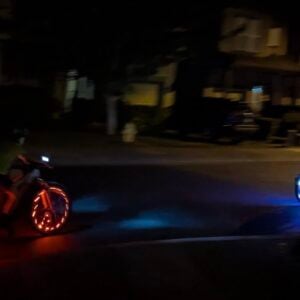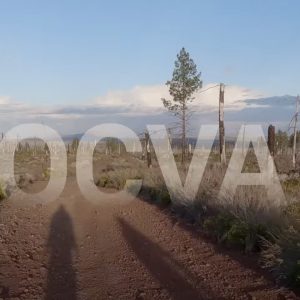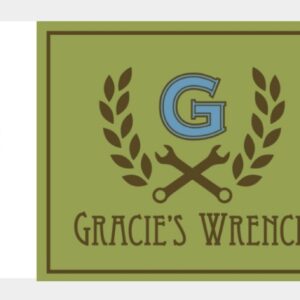
(Photo © Russ Roca)
The latest episode of our ongoing Pedal People series features Jude Kirstein of Epic Wheel Works. Jude launched her custom wheel building business back in March of 2009. Since then, her business — which she runs out of a small shop in Southeast Portland — has flourished. Jude now makes wheels for several local custom bike builders and bike shops as well as maintaining a client list that includes adventurers, racers, and other high quality wheel enthusiasts all over the world.
Learn more about Jude’s approach to business, and what wheel building means to her, in the audio slideshow below:
[Publisher’s Note: This is the latest episode from our ongoing Pedal People series created for BikePortland by professional photographer, adventurer, and storyteller Russ Roca. Pedal People takes a closer look at the people who keep Portland’s bike scene interesting and vibrant. We are currently looking for an advertising partner who would like to support this series while gaining some valuable exposure. If you are interested, please contact our sales and business manager Jonathan Reed.]







Thanks for reading.
BikePortland has served this community with independent community journalism since 2005. We rely on subscriptions from readers like you to survive. Your financial support is vital in keeping this valuable resource alive and well.
Please subscribe today to strengthen and expand our work.
Yeah Jude!
This slideshow is great – it really gives you a sense of what a pleasure it is to work with Jude. I love the thought and craftsmanship that went into my own pair of Epic Wheels. The details wink at you and say “yeah, this one’s for you!”
It’s also been really neat to see my customers work with her to get their custom wheels because her enthusiasm for wheels is totally contagious and she’s fantastic about sharing her knowledge.
I ran into Jude at a Pedalpalooza event where she was offering free wheel truing – she worked on mine, found 2 broken spokes and repaired them enough for me to get home. I brought her the wheel the next day and she repaired it – it is still going strong – very good and very reasonable!
Jude’s The Best…had a pair of wheels built last summer and they are works of art!
Ran into Jude this morning on my commute, first class human!
Love this new series!
Jude teaches part time for us at United Bicycle Institute (and she’s a grad of our advanced wheel seminar). We’re stoked to see her business doing so well!
Jude is a wonderful person and an amazing wheelbuilder. She really knows and loves her craft. She built a set of race wheels for me last year that are the envy of the peloton. It never fails that someone asks me what kind of wheels are they and where did I get them. We are working on building another set for me. Not because I need them, just because I want them. I love my wheels!
Jude built the wheels for the first Truck Trike, and they are doing just fine under some SERIOUS loads.
She is also a genuine pleasure to work with.
Thanks Epic! Uh, Epic Thanks!
Jude built me a rear wheel earlier this year and helped to guide me toward a spec that was best for me, even though I originally had something else in mind. The wheel has been outstanding and I’m quite glad I took her advice.
Wheel question: what makes a good handbuilt wheel different from a bad one, assuming the same parts and lacing pattern? Is it just that all the spokes are evenly (and appropriately) tensioned, or is there more to it?
All in the hands I guess. I did notice her site is conspicuously devoid of pricing information…except for the T-Shirt.
In my case, I could not find 40 spoke wheels, with stainless spokes and a SON generator hub in a 26″ size. Peter White would build them, but they wanted more than Jude did, plus shipping. Jude looked at what I wanted, corrected two erroneous assumptions that Peter White’s shop made in their quote and had the job finished and ready to go on the day she promised.
Nothing beats 1:1 with the people who are building your stuff.
Yes, Spokes need to have enough tension and be tensioned evenly. And also they need to be stress relieved, elbows seated, spokes aligned so only axial stress (and some shear at elbows) is present (no bending stress at elbows!). This is achieved by over-stressing the spokes and taking advantage of bauschinger effect.
Obviously, a wheel that is, and stays true, is the main goal. A sub-goal then is to build a wheel whose spokes never go slack. So if a wheel is not evenly tensioned, that is, if a spoke is not tensioned as high as the others, that spoke will go slack first under high load. On loss of pre-load, the nipple may loosen (and the wheel goes out-of-true), but also, the stiffness of the wheel decreases, the rim is more likely to get permanently bent and /or other spokes overloaded.
Lacing pattern really doesn’t matter, except if the hub flange can’t handle radial. Also some sort of tangential pattern is required on the rear wheel to transmit the torque. (Note the spoke force increase in tangential spoked wheel due to rider torque, is negligible… the force in the spokes is mostly just initial preload. To state the obvious, a spoke only sees axial force regardless how the wheel is loaded!)
So the goal is to have as high of spoke tension as possible. The limitation is typically the rim strength or maybe nipples, depending on type. Buckling of the rim is typically not an issue with today’s non-box rims. But nipple pullout occurs or maybe a fatigue crack 4 or 5 years or sooner due to the high contact and bending stress into the rim from the nipple (especially on low spoke count rims . Some rim manufacturers have a max spoke force, but who knows if they have actually done any fatigue tests or analysis. Spokes shouldn’t break and if they do it usually points to improper or lack of stress relieve. (For this reason spokes can definitely be re-used, as long the elbow isn’t re-bent too much, ie re-use on the same side of hub flange! )
So a wheel built with quality off the shelve hubs, nipples, spokes and rims, is fairly easy and quick (~30 min) to do (for an experienced wheelbuilder). The spoke length needs to be correct (spoke end flush or slightly out of the nipple), the spokes need to be stress relieved, the spokes need to be as evenly tensioned as possible. Since 8/9/10 rear wheels are built with such un-even tension, the non drive spokes probably need to be thread locked. If the wheel is to be really loaded, consideration should be given to a more symmetric rear wheels. (ie 7 speed or greater over locknut distance, 135mm 140mm or more..).
So it really does come down to the builder. You just can’t beat sensibly built wheels using a sensible number of spokes, and appropriate spoke patterns, with appropriate tension. It’s always nice to have the wheel builder be local for a quick true-up or a quick tape and spoke transfer for that bent rim.
that’s great insight! there is another limitation with modern components–the hub flange. some hubs with sealed cartridge bearings are easily effected by spoke tension. if the flange is pulled too much, the bearing will creak inside the race. a 4-cross on these hubs can also have the same effect.
Ahh yes great catch… I forgot about that and didn’t think about how radial versus a tangential spoking would affect! The fit of the bearing OD into the shell should be net to slight interference( a mil or two)…… with all that force the flange / hub shell will increase in diameter. [how much is Probably fairly accurately estimated using the same eqns for thick walled cylinder under pressure… all the spokes individual forces can be “converted” to pressure]. Ahh thus another reason for not trying to save too much hub weight with light flanges…
mmm, dat truing stand!
Fabulous, absolutely so fabulous this wheel building niece of ours, good job Jude, we are proud of you. B & R
Nice to see Jude doing well!
Thanks for all the positive comments today. A big thanks to Russ Roca for thoughtfully sharing the Epic story. I am happy to talk to people on an individual basis about wheels (including price) but stay tuned for our new look coming soon!! Thanks for the support Portland!
One of my heros.
bauschinger effect? Has this really been demonstrated in wheel spokes? any references?
yes. Spokes are steel components and so of course subject to standard engineering stress strain relationships. The bauschinger effect can be considered cold-working. wikipedia is a good reference as well as most strength of materials or mechanics of materials books.